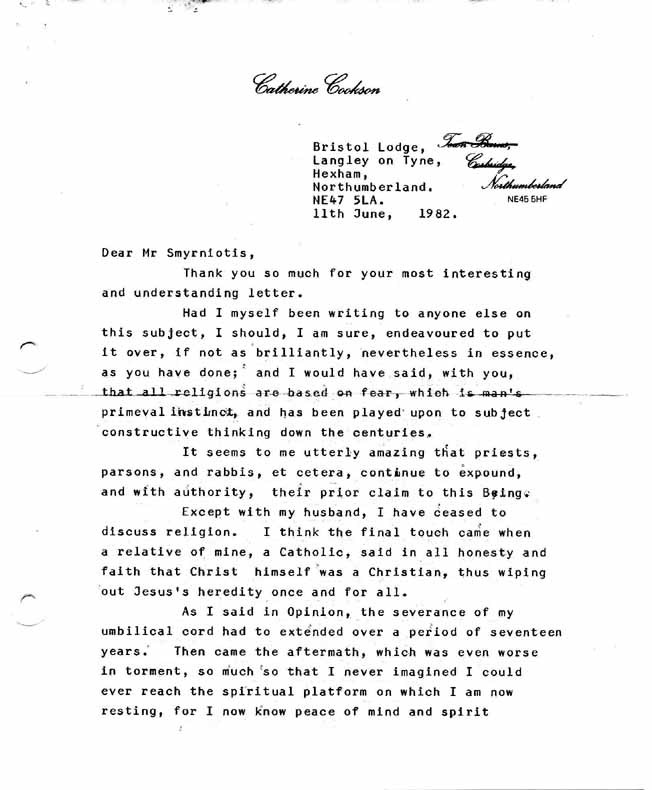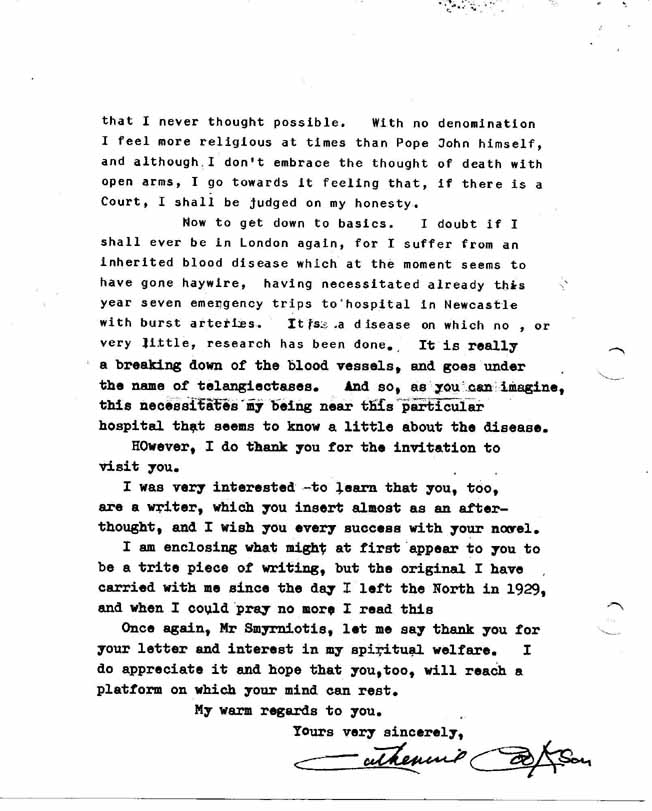
Extracts from correspondence with John
K Smyrniotis, including her original letter in full, below.

Here is what Catherine Cookson was replying to (extracts from letter of 2/6/82.) John K. Smyrniotis wrote:
"I think there are deep and important lessons to be drawn from the universality of this shattering faith/doubt experience. It seems that most religions touch upon the same primeval needs and instincts in man in order to capture him so totally that any later thoughts of disloyalty become unbearably painful, frightening and guilt-ridden.
"I would be interested to know whether you, like me, have tried to analyse what it is that makes a religion's grip so powerful on our minds. Personally, I have noted that most religions rely on three basic teachings in order to achieve this: They claim, A) not simply that they have the truth, but that this truth was handed to them directly by God, and therefore rejection of it would mean rejection of the person by the Almighty, a frightful fate. B) That God takes an interest in all aspects of our lives, and therefore that our day to day happiness or misery depends on Him. C) That there is an ultimate reward or punishment to be meted out, so significant that no risks are worth taking which might jeopardise one's good standing before God.
"To sum up, most religions seem to play upon our three most basic fears: Fear of rejection, fear of unhappiness and fear of death. Or to sum up further, they rely solely on fear.
"Unfortunately for us, we would all very much like an almighty being watching over us every day, helping us face life's painful burden. And, as the idea of God's existence is undoubtedly a perfectly logical one, it is easy for us to fall prey to the proposition that it is possible to establish an umbilical cord with God, the maintaining of which depends solely on carrying out certain "duties."
"I began to find relative peace of mind from the moment … I realised that God is far too intelligent, wise and realistic to be fooled by repetitive rituals and meaningless, symbolic acts of piety…" [Followed by a personal exchange.]



